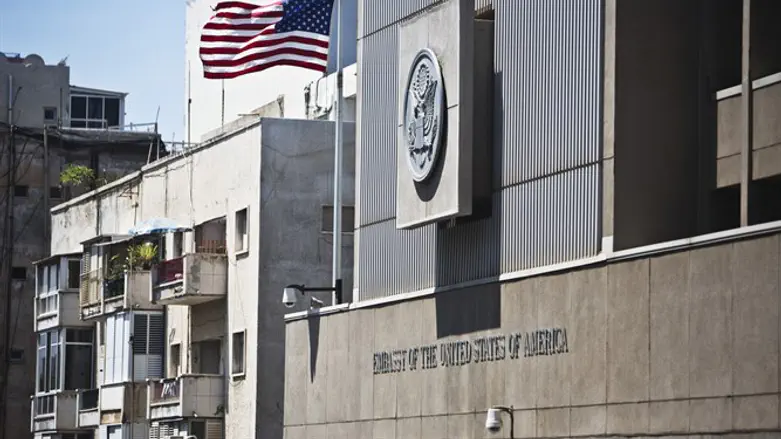
Israel’s National Planning and Building Committee has recommended that the US consulate compound in the Arnona neighborhood of Jerusalem be granted a special exemption, permitting the US to upgrade the facility into an embassy in time for the planned May 14th relocation deadline.
The decision comes a week after Israeli and US State Department officials expressed concern that Israeli bureaucracy and local zoning regulations could seriously delay the planned relocation of the American embassy from Tel Aviv to Jerusalem.
Last December, President Donald Trump ordered the embassy moved to Jerusalem, fulfilling his 2016 campaign promise to implement the 1995 Jerusalem Embassy Act, a bipartisan law requiring that the US embassy in Israel be located in Jerusalem, Israel’s capital city.
Secretary of State Rex Tillerson initially claimed the embassy move would take roughly two years, but later backtracked and said that plans to complete the move in even three years were “ambitious”.
In February, however, the State Department said that it would transfer its Israeli mission to Jerusalem in two stages.
The first stage would see the US consulate building in Jerusalem’s Arnona neighborhood designated as the new embassy. Ambassador David Friedman’s office would be transferred to the Arnona facility, along with a limited number of other staff members.
The remaining embassy operations would be relocated to the new embassy sometime around late 2019, after an annex to the Arnona facility is refitted to serve as part of the new embassy.
US officials had set a May 14th opening date for the new embassy – coinciding with Israel’s 70th Independence Day.
But US and Israeli officials later found that bureaucratic red-tape barred the necessary upgrades to the US facility to prepare it to serve as an embassy in time for the planned May 14th unveiling.
State Department officials had requested permission to construct a roughly 10-foot wall around the new embassy building, as well as pave a new road to increase access to the facility.
Director-General of Israel’s Foreign Ministry, Yuval Rotem, warned Finance Minister Moshe Kahlon (Kulanu) that without special dispensation from the government to circumvent the normal bureaucratic channels, the embassy cannot be opened by May 14th.
“The process of requesting alterations the current [zoning] plans will likely take a long time,” wrote Rotem, “preventing the work from being completed in time for the embassy move. Until the changes are completed, the compound will not meet the requirements of the State Department for the American Embassy.”
Under normal circumstances, the US State Department’s request to rezone the compound to permit the alterations would require approval from the National Planning and Building Committee.
Given that the committee’s next meeting is scheduled for April, the setback would likely preclude the possibility of opening the US embassy in Jerusalem in May as scheduled – an embarrassment for Jerusalem officials, who have for decades called for the US and other powers to relocate their embassies to the Israeli capital.
Prime Minister Binyamin Netanyahu has urged authorities to remove all bureaucratic obstacles holding up the embassy move, with Finance Minister Kahlon requesting that the National Planning and Building Committee back a special waiver for the US facility.
On Tuesday, the committee announced that it would back Kahlon’s request and officially recommend the minister issue the waiver.
“The committee held a hearing to examine the planned improvements for the [future] US embassy in Jerusalem,” National Planning and Building Committee chief Dalit Zilber said Tuesday.
“In light of the fact that the request does not violate the existing general zoning framework, the committee voted unanimously to recommend the speedy relocation of the embassy to Jerusalem within the planned timeframe.”
Kahlon praised the committee’s decision, saying that the move showed Israel would not allow bureaucratic red-tape to hamper the relocation.
“Like we promised, we did not let bureaucratic red-tape to hold back the relocation of the American embassy to Jerusalem, the eternal capital of Israel. This is a strategic political process, for the State of Israel, and the planning agencies under my authority will do everything necessary to fit in the required timeframe.”
